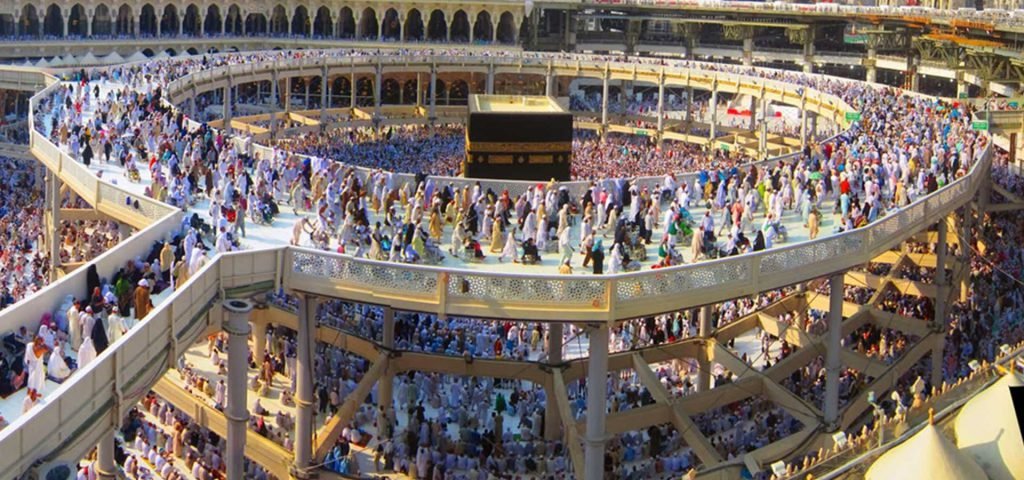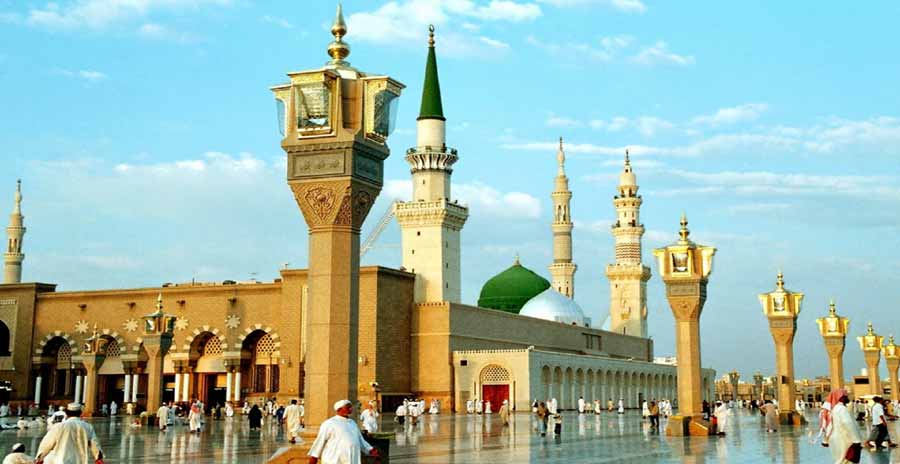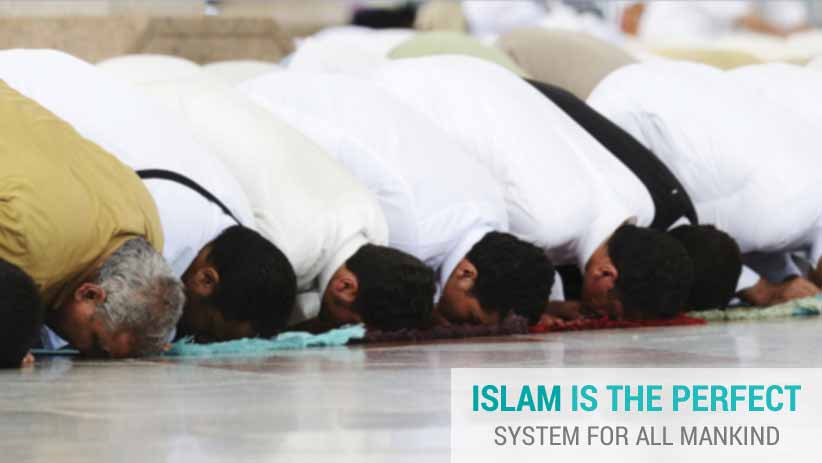
The conversion of Arcadio Jeffrey Perida, a Filipino Judeo-Christian, to Islam at the hands of Saudi student Khaled Almehmady in Manila brings to limelight the important role of Saudi students — who pursue their higher studies in reputable universities abroad — as ambassadors of Islam disseminating its divine message.
Speaking to Saudi Gazette, Perida, who performed Haj this year as the guest of Custodian of the Two Holy Mosques King Salman, narrated his spiritual journey to Islam and noted the role played by his ESL student Almehmady by not only giving him Islamic books and videos but also continuously encouraging him to read or watch them.
A number of Saudi scholarship students in foreign countries have already set a good example in this respect like Almehmady.
In a wide-ranging online interview, Perida emphasized the important mission of Hajis in their society as ambassadors of Islam when they return to their respective countries. “They should be able to touch every soul with the new experience they have gained and the enormous blessing that has been bestowed on them by God, by making use of every opportunity of speaking in centers, schools, symposiums and social gatherings when invited as resource persons,” he explained.
Perida added: “This would be a way of spreading Islam on a personal level after becoming a living witness to the miraculous journey that we have just embarked upon during the pilgrimage.” The Hajis should also impress their family, friends and countrymen through the changes in their lives, giving them inspiration, spiritual encouragement and motivation, he said.
Perida, whose newly adopted name is Jabir Kalid Perida, expressed his deep concern over the Daesh terror group’s efforts to tarnish the image of Islam, which is a peaceful religion.
“With the obvious threat of the IS and other extremist groups, my hope is that the life that we will lead from here on as a Haji and the good messages we will bring forth will serve as a living testament that will outweigh the evil perpetuated by any segment of our society willfully and purposely promoting hate, violence, terror and injustice, affecting any human being,” Perida said while answering a question.
“I sincerely beseech Allah’s divine guidance and blessings to give us the courage, determination and endurance to march on and continue the work that we all have started in Makkah, and if we can do this task from now on and for as long as we live, then we can honestly and sincerely say, Haj Mabroor,” Perida said.
The Filipino revert explained how he met Almehmady. “During my studies for the master degree, I was given a job as a professor in one of the colleges in Manila where I taught ESL. It was also this time my father passed away and the day after his death I met Almehmady. The dean had assigned me to personally take care of this Saudi student since I was the only ESL teacher available at that time. Little did I know that this will be the beginning of my journey to Islam.”
Although Almehmady took only two months to study English with Perida, the two had developed a strong bond “which I would describe as some kind of divine providence.” They stayed in touch even though the Saudi had enrolled in another university and kept on sending videos from YouTube regarding Islam after giving him books about Islam and a small Qu’ran in English.
“For months I did not even bother about watching or reading them because of apprehensions about Muslims caused by negative stereotypes promoted by the media and the influence of a Jewish teacher who used to tell me only negative things about Islam, Prophet Muhammad (peace be upon him) and even the Roman Catholics. But every time Khalid would ask me about the books and videos, whether I have read them, or watched them, and I would say yes, which was a lie. It bothered me a lot because of a prick of conscience. I never condoned lying, especially to a friend. So I started watching the videos and reading the books,” he said.
Perida adds: “To my surprise, I honestly enjoyed them and found them interesting. It gave me new knowledge which opened my heart and changed my entire perspective about Islam. So now whenever I chat with Almehmady, I can say with confidence that I truly find all the things he gave and sent to me really good and relevant.”
Almehmady went on vacation to Saudi Arabia and both of them were communicating on WhatsApp. “One day he told me that he was very tired. So I asked why? And he said he just finished doing an ‘Mrah.’ I was clueless what that meant. I actually got worried because I thought it was some sort of a medical procedure. When I searched that word, it showed Magnetic Resonance or something, so I asked him why he had to do it. But he just told me it’s hard to explain, it is something religious and what they do as Muslims. So I stopped asking, although I was really bothered by it.”
That night, while Perida was deeply asleep he had a wonderful dream. He still remembers that it occurred between 4 and 5 am. “It was so real that I actually felt I was entirely in it. The first part, I can clearly see that I was watching from afar multitudes of people walking around in a circle in what I can describe as a black, box type monument. I saw this in one of the books I read and some pictures too. It seems like I was on the second floor of a building. Then in just a blink, I saw myself inside the circle walking around and I was puzzled because I was wearing an entire white robe just as everybody was, then I came closer and closer to the big black structure with some gold writings around it. As I was about to touch its wall, I looked at my right and there he was, Khaled, walking along with me to the wall and we touched it the very same time. As soon as we laid our hands on it, I felt this strong wind swirling around us for a number of times and went inside our bodies, I can still see our robes blown out when it entered and for some reason, I looked up, without knowing that it is forbidden, and saw a ray of light coming down from the heaven in what seemingly appears from a cloud opening like a door to give way to it and shone upon me.”
Narrating the last part of the dream he said: “I saw myself walking inside a very big mosque, with so many people, I was looking around in amazement as I walk in normal pace until finally once again, here was Khaled pulling my right hand and asked me to walk briskly and not slowly, which made me wonder why. Up to that point, I finally woke up, it was dawn already and when I woke up, I was disoriented and confused where I actually am. In my mind, I am convinced that I was in Saudi Arabia, in Makkah, while I was in my room. Eventually, after a few seconds, I began to realize that it was just a dream. At that point, I didn’t waste any time, I texted Khaled in WhatsApp and told him about the dream, although he did not tell me directly, he implied that it was what he did the other day, the ‘Mrah’ (Umrah).”
Almehmady kept on telling Perida that it was his ultimate wish that he would really become a Muslim one day to perform the same thing, Umrah, but the latter was still undecided on embracing Islam.
Perida went on with his daily normal routine, but the images of his dream kept pursuing him “like a blazing iron imprinted in my heart.” He had two more dreams which had taken him to a dessert, again with Almehmady and it felt exactly the same. “I knew it was again in Saudi Arabia because the setting was exactly what I am seeing now. Four months later I decided to do my shahada. On Aug. 1, 2014, I declared that I wanted to become a Muslim. My friend was not available to take me to the masjid and told me that he would be free after 6 days and then take me to do my shahada. So after 6 days, I finally did it and became a Muslim. It was the best thing that ever happened. The feeling was so surreal that I never could have imagined that will happen to me in my life, but it did. Alhamdulillah.”
Perida expressed his happiness over receiving a golden opportunity to perform Haj as the guest of King Salman and visit the two holy mosques in Makkah and Madinah. “By the grace of God, I was able to visit the very place, which I dreamed about. The message is perfect when Allah guides someone to come back, Allah shows the way and makes it clear, that it was indeed a divine mandate. All things work together for those who open their hearts and allow the spirit of Allah to come, and once it has, the peace that surpasses understanding will come upon us.”
He said the Haj had given him an enormous opportunity to meet Muslim brethren from different parts of the world and gain new friends to share their different views, perspectives, and experiences. “The fascinating facts and stories of each individual are indeed a treasure which I shall forever keep upon my return, and the bond of friendship we have established is one of the best things that have happened.”
Perida said he was fortunate to have the support of his entire family including mother, for coming back to Islam. “I have never experienced any form of rejection nor prejudice with my decision of changing to another religion. I never had a tough time convincing them to accept me and my newfound faith. As a matter of fact, they are even mindful of the things that are allowed (halal) and not allowed (haram) for me to eat, drink and do as a Muslim.”
He expressed his discomfort about the increasing negative propaganda against Islam. “The media has created an image of violence and terrorism associated with Islam which gave an apprehensive attitude toward Muslims compared to followers of other religions. But through every challenge, an opportunity arises, and this is the time for every Muslim to show the true spirit of Islam, by promoting peace and harmony through absolute and unconditional submission to Allah, and firm obedience to the commandments and messages revealed by the Prophet, peace be upon him. We must uphold the principle that the way of Islam is to create unity and peaceful coexistence in love and compassion not only with every human being but also with nature and Allah’s other creations. Through these ideals, we will be able to spread Islam and clear the path of uncertainty that has clouded the minds of people belonging to other faiths,” he said while stressing the need to make use of modern technology and social media networks for the dissemination of Islamic message.
Speaking about his family and religious upbringing, Perida said: “I was born in a strict Roman Catholic family. My grandparents in the province never miss the usual angelus held every 6:00 pm and demand that all of us be there on the dot to pray the rosary with them or otherwise suffer the consequences of not having dinner. I have the foundation of becoming a very successful priest someday.” Perida later went to the US where he stayed for 7 years. Upon return, he continued his studies and completed his Bachelor in Business Administration course with a major in Human Resource Development Management. Later he obtained a master’s degree in business administration.
The Filipino revert was all praise for King Salman. “Thanks to the blessing of Allah and the king’s support, I was able to perform Haj in the most opportune manner, which I can say is a proof of the wonders and miracles of Allah. As a result of the royal gesture, this dream has become a reality for me, and for the 2,399 others who were also chosen to be the king’s guests for Haj 1436H. And of all the journeys that I have been to before or will be embarking on in the future, this is the ultimate, something which can never be forgotten, for this is the journey of my faith, a realization of a dream and the fulfillment of a spiritual quest.”
We have a wide range of spiritual journey Packages are given below:
Umrah Packages | Hajj Packages | Ramadan Umrah Packages | December Umrah Packages
Article by: saudigazette.com.sa





